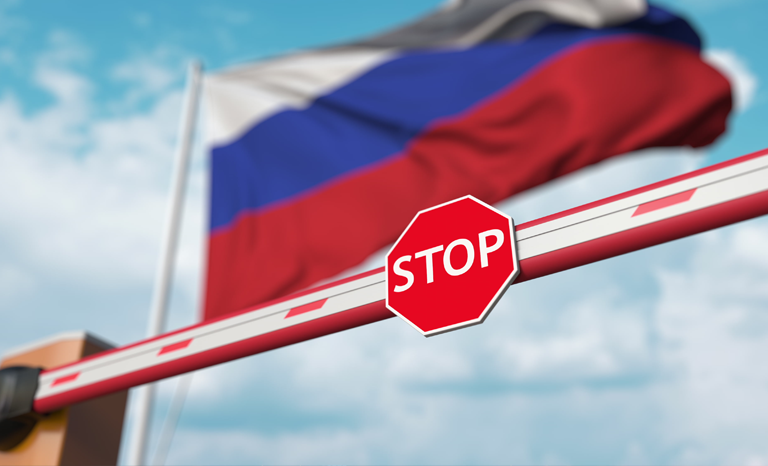In a recent development, the National Crime Agency (NCA) has issued a warning to financial institutions and other members of the UK regulated sector regarding Russia’s intricate attempts to circumvent sanctions and procure restricted goods and services. The sanctions, a consequence of Russia’s invasion of Ukraine, have significantly impeded its access to international markets, particularly for military supplies.
Russia, undeterred by these restrictions, is using complex supply chains and alternative routes to acquire sanctioned products, prompting the NCA to collaborate with key government agencies. Working with agencies such as HMRC, the Department for Business & Trade, the Foreign, Commonwealth & Development Office, and HM Treasury’s Office of Financial Sanctions Implementation, the NCA has taken steps to assist the financial sector and other businesses in identifying potential suspicious transactions.
Common High Priority Items List
In response to Russia’s actions, the UK, along with G7 partners (US, EU, and Japan), has developed a Common High Priority items list, categorised into four Tiers:
- Tier 1: Integrated circuits (microelectronics)
- Tier 2: Electronics components, including communications modules and passive electronic components
- Tier 3A: Further electronic components used in Russian weapons systems, with a broader range of suppliers
- Tier 3B: Mechanical and other components utilized in Russian weapons systems
- Tier 4: Manufacturing, production, and quality testing equipment of electric components, circuit boards, and modules
These items are deemed high risk for potential use in Russian sanctions evasion efforts.
Indicators for enhanced due diligence
The NCA, in collaboration with other government agencies, has outlined red flags to assist businesses in identifying potential illicit activities. Among the indicators for the financial sector are:
- Transactions related to payments for goods on the Common High Priority list: Especially those from a company incorporated after February 24, 2022, and based in known diversionary destinations.
- Customer information lacking or refusal to provide details: Including details on banks, shippers, or third parties, as well as information about end users, intended end-use, or company ownership.
- Transactions involving smaller value payments: Particularly those from the same end user’s foreign bank account to multiple, similar suppliers of Common High Priority list items.
- Significant overpayment for Common High Priority list items: Compared to known market prices.
- Purchases under a letter of credit consigned to the issuing bank: Not to the actual end user, with supporting documents not listing the actual end-user.
- Transactions involving entities with little to no web presence: Such as a website or a domain-based email account.
- Transactions involving customers with phone numbers: Country codes that do not match the destination country.
- Items or services not fitting the purchaser’s line of business.
- Customer’s name or address similarity to parties on the OFSI consolidated list.
- Transactions involving purported civil end-users: But research indicates connections with the military, such as an address co-located with military facilities.
- Transactions involving companies physically co-located or with shared ownership: With an entity on the OFSI consolidated list.
- Transactions using open accounts/open lines of credit: When payment services are conducted in conjunction with known diversionary destinations.
- Transactions involving a last-minute change in payment routing: Previously scheduled from a country of concern but now routed through a different country or company.
- Transactions involving payments being made from entities located at known transhipment points: Or involving atypical shipping routes to reach a destination.
Advisory to UK businesses
UK businesses are strongly advised to conduct thorough due diligence to ensure that products listed in the Common High Priority items are not destined for Russia. The financial sector, including banks, credit card operators, foreign exchange dealers, and non-bank payment service providers, is encouraged to maintain vigilance against global attempts to circumvent trade sanctions.
The NCA’s alert extends beyond the regulated sector, also targeting anti-money laundering efforts in customs brokers, freight forwarders, and other transportation and logistics providers.
The full alert document is available on the NCA website here.
How Neopay can help
In the face of evolving challenges related to potential sanctions evasion, Neopay offers tailored support to fortify your financial crime prevention framework. From ad-hoc assistance with customer due diligence to a thorough review of policies, procedures, and processes, our expert team ensures your business remains compliant with sanctions regulations. We assess transaction monitoring and fraud prevention systems, empowering your organisation to detect and prevent illicit activities effectively. We provide holistic guidance on managing customer relationships and offer tailored training programs to keep your team informed and vigilant.
Contact our team to find out more about how we can support your business.



